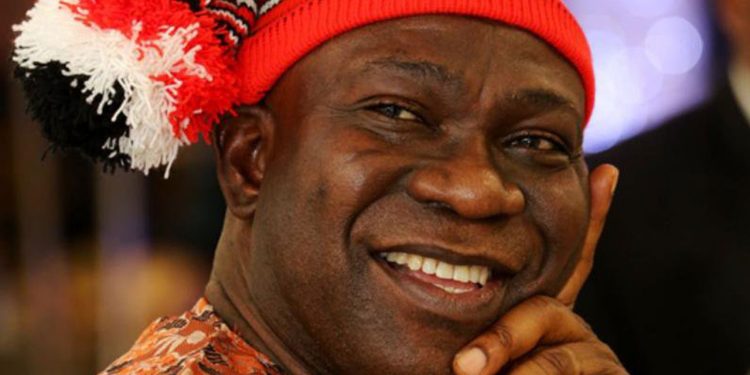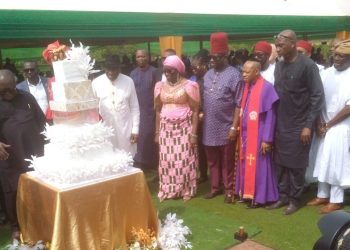By Emmanuel Aziken, GWG
The celebration of this year’s June 12 Democracy Day was undoubtedly about the loudest exertion of the democratic spirit since President Muhammadu Buhari shocked everyone in 2018 with his decision to proclaim the day a public holiday.
For one who had hitherto been defined by his disinterest, if not animosity, to the June 12 struggle, Buhari’s action caught many people unawares that year.
However, many people saw through his decision as a sop to the Southwest, and if not, to the larger body of democrats across the country who were emotive on issues concerning Chief MKO Abiola, the mandate bearer.
Some said at that time it was a ploy by Buhari to worm his way into the tents of MKO Abiola’s disciples ahead of the 2019 election.
Was he successful? Sure!
By declaring June 12 a public holiday and a day to mark the nation’s Democracy Day, there were some others who also saw the move as a stinker by the then incumbent president to further stoke emotions against two of his principal rivals in the polity, President Olusegun Obasanjo and General Ibrahim Babangida.
Obasanjo was one who did not see Abiola as Nigeria’s messiah, while Babangida was the very cause of the June 12, 1993, crisis that upended the progress of the nation. By honouring Abiola with the June 12 public holiday, Buhari inevitably put the two men in a pickle.
So, with President Bola Tinubu now in the saddle, and given his past passions and proclivities towards the June 12 struggle, much was expected of him in bringing the dreams of the June 12 protagonists to fruition.
He really did not disappoint last Thursday as he presented a speech to the National Assembly. The national honours on some of the major activists was heartily received across the polity, though with some reservations over the honour to some characters who have now found a penchant for desecrating the democratic ethos they once espoused.
However, it was in the heat of the moment last Thursday that Senate President Godswill Akpabio, acting on the speech of Speaker Tajudeen Abbas ruled on the proposal that June 12 be accorded a formal day for the presidential address to the National Assembly.
“Mr President, in the eloquent speech by the Honourable Speaker Tajudeen Abbas, he raised a motion that June 12 should be formalised as the Presidential Day of Address to the joint session of the National Assembly. I hereby put the question,” Akpabio said, before calling the question.
“Those in support of the motion, moved and seconded, say ‘Aye’; those against say ‘Nay’. The ‘Ayes’ have it,” Akpabio ruled.
While some may see Akpabio’s move as drama, chronic optimists in Nigeria’s democratic journey will, however, see the move as a progressive move towards entrenching accountability in the democratic space.
Ironically, the move to institutionalise a state of the nation address has for long been championed by Senator Ike Ekweremadu. Indeed, a bill to that effect was passed by the 7th National Assembly along with many other progressive enactments. However, many of these bills were vetoed by President Goodluck Jonathan on wrong advice by some of his handlers.
One of them, a female minister from the Southeast, this correspondent gathered, saw the bill as a move by Ekweremadu to gain popularity ahead of what she claimed was his bid to run for the presidency with Senator David Mark.
Remarkably, even before Jonathan, Ekweremadu and others had successfully lobbied President Umaru Yar`Adua on the bill and it appeared that he, Yar`Adua had given his support before sickness took him away from the nation.
Whatever, it is heartening that almost ten years after that progressive step was upended, the spirit of truth has again, even if only temporarily, seized our parliamentarians.
It is understood that a bill to give legal backing to the move is also in the works.
Causing the president to annually render an account of developments in the country is a worthy act to further institutionalise democracy. That move will bring to all the fact that the president is accountable to the National Assembly. Not only will it rubbish the impression of an imperial presidency as some are wont to allude in the present dispensation, it will also reenergise the lawmakers as to their powers and prestige in the democratic space.
Ghana has such a law compelling the president to annually address parliament. Likewise, the United States, the country from which we adopted our presidential system of government.
The presidential address should be a good opportunity for the president to enunciate his legislative and other ideas. A big day to speak his big dreams to the lawmakers and to the nation.
The presidential address is only one of several constitutional imprints that were marshalled by the sixth and seventh assemblies, which were, however, frustrated by the sparseness of foresight by the Jonathan administration.
It is thus cheering that even though now separated from the developments in the polity by reason of his personal challenges, it is worthy of note that Akpabio is responding to matters long ago articulated by Ekweremadu and his colleagues in the past assemblies. This correspondent can only wish them Godspeed.
*Aziken is the publisher GWGonline









